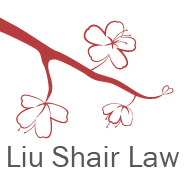"The latest developments on Special Needs Planning, SECURE Act, and ABLE Accounts: How these impact planning for your family member with special needs"
Earlier this month, I attended the Special Needs Planning Symposium in Napa. It was so wonderful to connect with other professionals who are passionate about helping families with their planning, including those whose families include someone who has special needs.
It is prudent for every adult to consider their wishes, goals, and plans. It can be even more vital for families who have a loved one receiving government benefits (e.g. SSI, Medi-Cal) to consider their planning so that their assets do not go through probate, go to their loved ones according to their wishes, are managed by trustees they trust, AND so that the beneficiary with special needs is well taken care of without jeopardizing their government benefits.
Though I have been working with families for several years on their Special Needs Planning, there have been some significant developments that are worthwhile to discuss: 1) SECURE Act, 2) ABLE Accounts, and 3) How these impact Special Needs Planning. This topic is incredibly important and I gave a talk to Friends of Children with Special Needs about it.
Here is an outline of what I shared.
What is Special Needs Planning (in the context of Estate Planning)?
-Ensure that a beneficiary with special needs is taken care of and has access to inherited assets for their benefit that are distributed by a trustee.
-The beneficiary’s qualification for income based governmental benefits would not be disrupted by inheriting these funds. (Trustee needs to be aware of what expenses to pay for with funds.)
-Special Needs Trust (SNT)
First Party SNT: if individual had disability before 26 years old and has personal funds (e.g. money from a lawsuit settlement); subject to Medi-Cal payback
Third Party SNT: funds come from someone else; not subject to Medi-Cal payback
Pooled SNT: can include both personal and third party funds; administered by a non-profit trustee
-Letter of intent to guide trustee and others who will be involved (I share a template with all my Special Needs Planning clients because this is a great way for everyone involved to be guided to the medical needs, care, and preferences of the family member with special needs)
What are the types of government benefits?
-Entitlement Based: SSDI, Medicare, Childhood Disabled Beneficiary
-Income Based: SSI, Medi-Cal, In Home Supportive Services
-Other Benefits: Section 8, Regional Center, Veterans Benefits, Cal-Fresh
SECURE Act (effective January 1, 2020)
-Changes age for taking out Required Minimum Distributions (RMDs) from 70 ½ to 72, no maximum age for contributing to retirement accounts
-Only Eligible Designated Beneficiaries can inherit a retirement account and take RMDs based on life expectancy (surviving spouse, minor child until they reach age of majority, disabled/chronically ill individual, someone less than 10 years younger)
-If retirement funds go to a disabled individual, the retirement account can ONLY be used for that individual through their lifetime (sole beneficiary rule, put SNT as beneficiary)
-If retirement funds go to a non-eligible Designated Beneficiary, then the funds must be withdrawn from the retirement account within ten years of the plan owner’s death
ABLE Accounts
-Savings account for a person with a disability to manage where qualified disability expenses do not impact income based government benefits (if the account balance < $100,000)
-Eligibility: qualified disability started before 26 years of age
-$17,000 maximum annual contribution (plus wages earned by the account holder; numbers updated for 2023); only one ABLE account per person
-Income earned is tax-free; there are different investment standards for the accounts
-Medi-Cal cannot recover from California ABLE Accounts after the ABLE account holder has passed away
How these impact Special Needs Planning
-Make sure to have a Special Needs Trust connected to your Revocable Living Trust
-If there are other benefactors (people who may want to give assets to your beneficiary with special needs), make it a standalone SNT; otherwise, if assets are inadvertently given directly to the individual, this could jeopardize their eligibility for income based benefits and/or a first party SNT may need to be set up.
-If you already have a SNT, you are advised to review current SNT to ensure that the individual with special needs is the sole beneficiary should retirement assets be connected to the SNT
-Discuss with your financial advisor whether you should consider changing the distribution of which assets go to which beneficiaries


